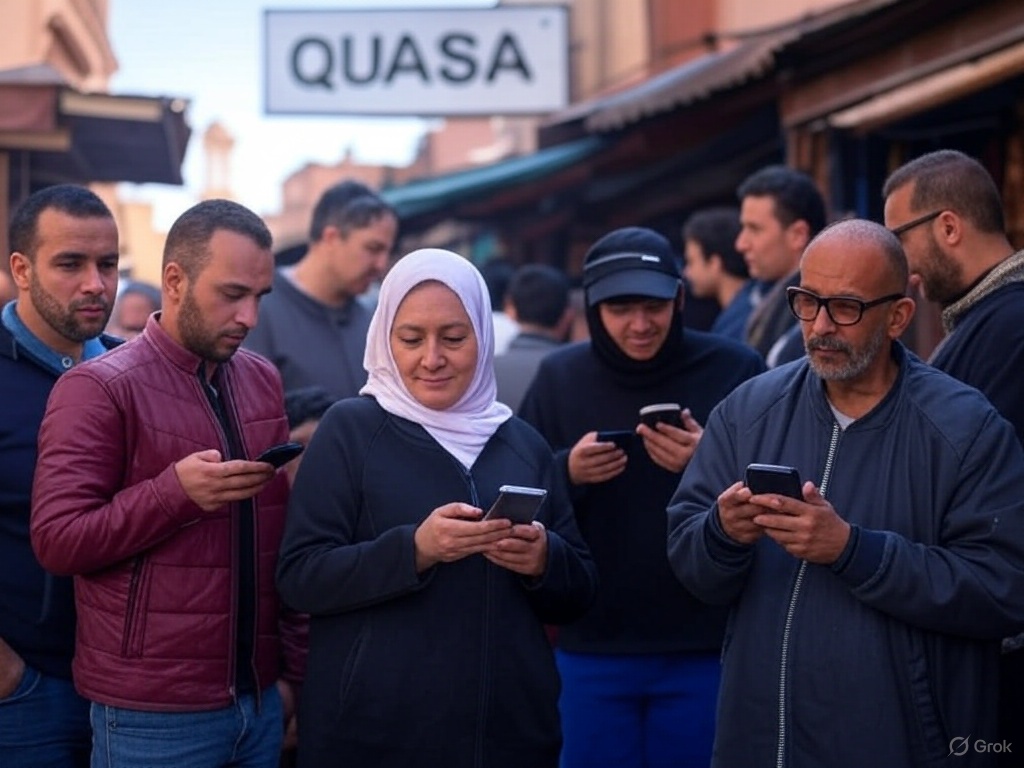Hello!
Morocco, a vibrant North African nation known for its rich culture and growing digital economy, is quietly positioning itself as a hub for freelancers seeking innovative ways to work and earn globally.
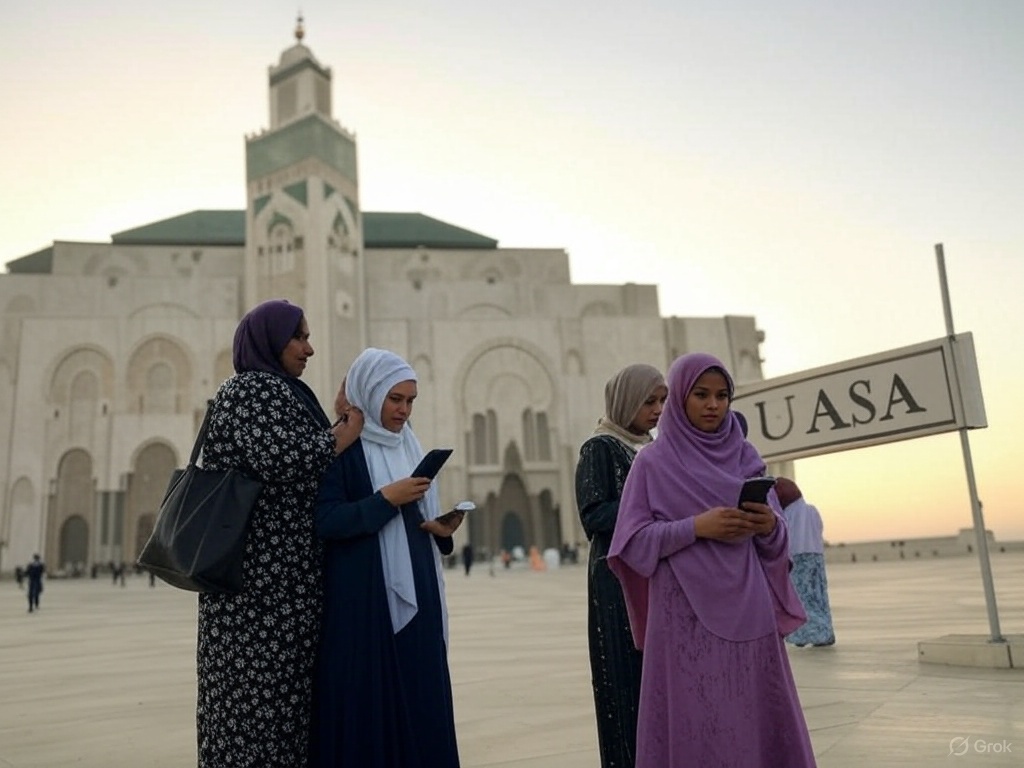 Amidst a global shift toward decentralized finance and remote work, platforms like Quasa Connect are transforming how Moroccan freelancers engage with international clients, leveraging cryptocurrency to bypass traditional financial barriers.
Amidst a global shift toward decentralized finance and remote work, platforms like Quasa Connect are transforming how Moroccan freelancers engage with international clients, leveraging cryptocurrency to bypass traditional financial barriers.
This article explores how Quasa Connect is reshaping Morocco’s freelance landscape, the opportunities it unlocks, and the challenges posed by the country’s restrictive cryptocurrency regulations.
The Freelance Boom in Morocco
 Morocco’s freelance market is flourishing, driven by a young, tech-savvy workforce skilled in fields like web development, graphic design, digital marketing, and blockchain technology. With access to high-speed internet and a growing entrepreneurial spirit, Moroccan freelancers are increasingly serving clients in the US, UK, EU, and beyond.
Morocco’s freelance market is flourishing, driven by a young, tech-savvy workforce skilled in fields like web development, graphic design, digital marketing, and blockchain technology. With access to high-speed internet and a growing entrepreneurial spirit, Moroccan freelancers are increasingly serving clients in the US, UK, EU, and beyond.
However, receiving payments from international clients has long been a hurdle due to high transaction fees, currency conversion costs, and Morocco’s tightly regulated financial system.
Traditional freelancing platforms often charge commissions as high as 40-50%, eating into freelancers’ earnings. Additionally, Morocco’s ban on cryptocurrency transactions, enforced since 2017, complicates the use of digital currencies for legal payments.
Despite these challenges, platforms like Quasa Connect are offering a decentralized, crypto-based solution that empowers freelancers to bypass these constraints and tap into the global gig economy.
Quasa Connect: A Game-Changer for Moroccan Freelancers
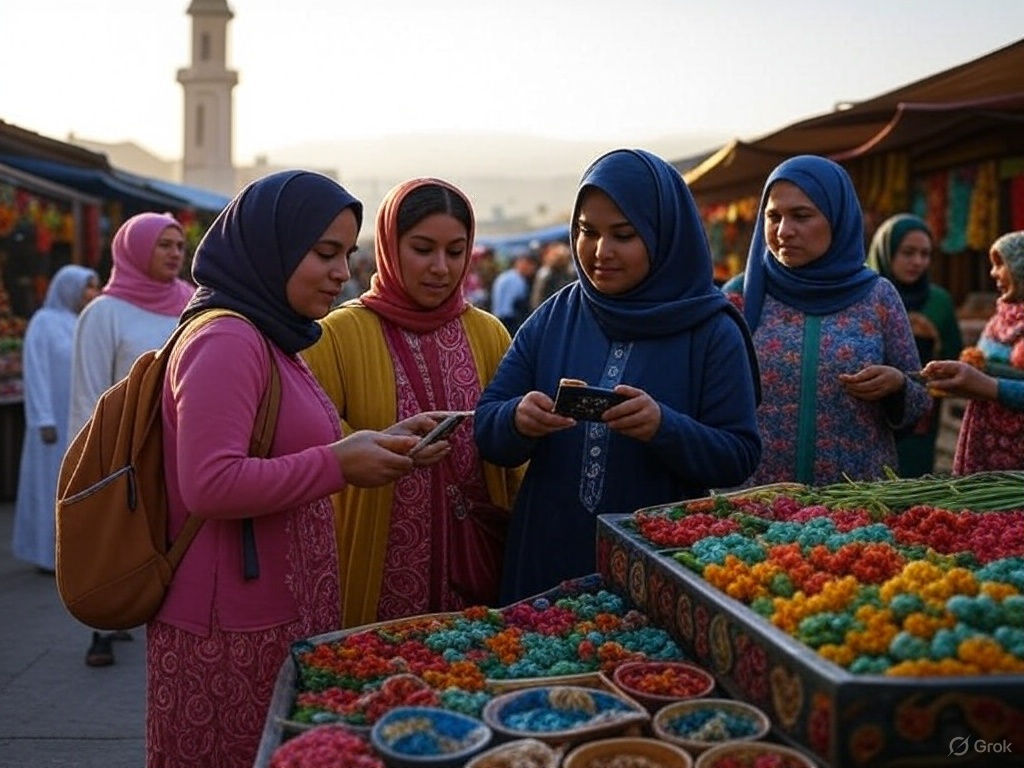 Quasa Connect, launched in 2023 as the world’s first mobile app for crypto freelancers, is revolutionizing remote work by integrating blockchain technology and its native Quasacoin (QUA) token.
Quasa Connect, launched in 2023 as the world’s first mobile app for crypto freelancers, is revolutionizing remote work by integrating blockchain technology and its native Quasacoin (QUA) token.
Unlike centralized platforms, Quasa Connect eliminates intermediaries, banks, and payment systems, allowing direct transactions between freelancers and clients using QUA, a governance token built on the Ethereum blockchain.
This decentralized approach offers several advantages for Moroccan freelancers:
- Cost Efficiency: Quasa Connect reduces transaction costs by 10-50 times compared to traditional platforms, as there are no conversion fees, bank charges, or commissions. Freelancers keep more of their earnings, which is critical in a competitive market.
- Global Accessibility: By using QUA, freelancers can work with clients worldwide without worrying about currency restrictions or cross-border payment delays. This is particularly valuable in Morocco, where international transfers in fiat currencies like the Moroccan dirham (MAD) can be slow and costly.
- Transparency and Security: Smart contracts govern all transactions on Quasa Connect, ensuring trust and eliminating fraud risks. Blockchain technology acts as a secure third party, holding funds in escrow until tasks are completed, protecting both freelancers and clients.
- No Regulatory Hassles: Quasa Connect operates outside traditional financial systems, allowing freelancers to sidestep complex banking regulations and paperwork. This is especially appealing in Morocco, where freelancers often face bureaucratic obstacles when receiving foreign payments.
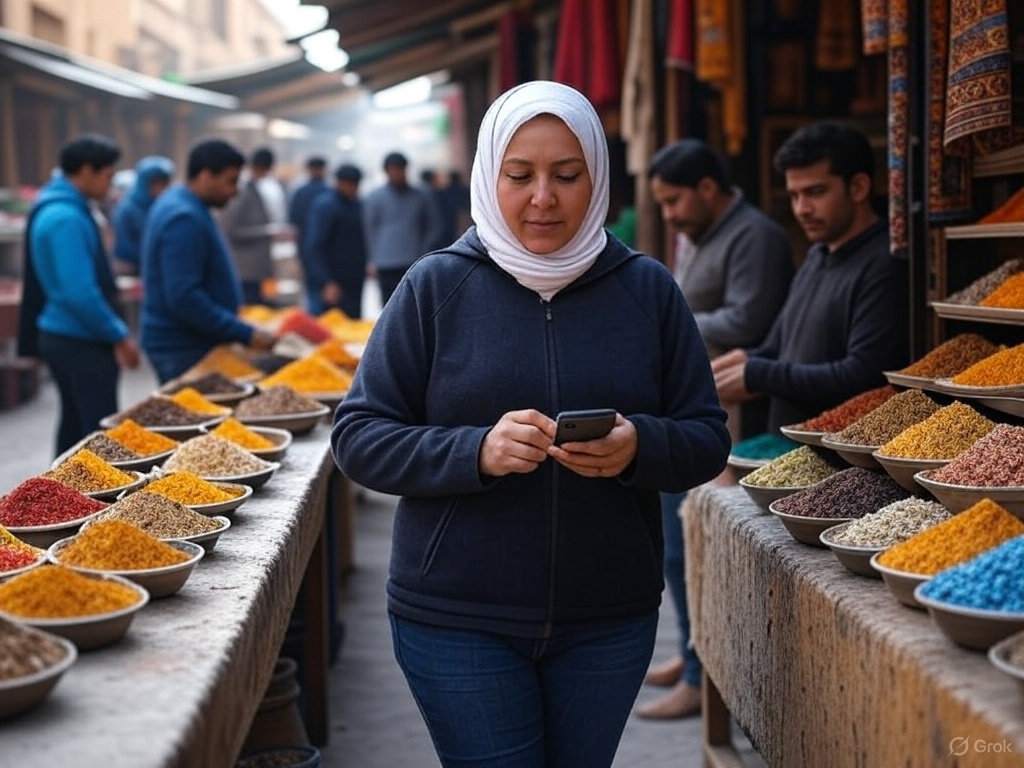 The platform supports a wide range of services, from IT and design to engineering and marketing, making it a one-stop marketplace for Moroccan professionals. Freelancers can create detailed profiles, showcase portfolios, and earn distinctions like “You can be trusted” or “You are praised” to boost visibility and attract high-value clients.
The platform supports a wide range of services, from IT and design to engineering and marketing, making it a one-stop marketplace for Moroccan professionals. Freelancers can create detailed profiles, showcase portfolios, and earn distinctions like “You can be trusted” or “You are praised” to boost visibility and attract high-value clients.
With over 200,000 monthly visitors to quasa.io and a growing community, Quasa Connect is gaining traction as a leader in the crypto-freelance space.
Opportunities for Moroccan Freelancers
 Quasa Connect opens up significant opportunities for Morocco’s freelance community:
Quasa Connect opens up significant opportunities for Morocco’s freelance community:
- Financial Freedom: By earning in QUA, freelancers are not tied to the Moroccan dirham or local banking systems, enabling them to hold and manage funds in a decentralized currency. This is particularly empowering in a country where economic volatility can impact earnings.
- Skill Monetization: Morocco boasts a large pool of talent in blockchain, cryptocurrency, and tech-related fields. Platforms like Quasa Connect allow these professionals to compete globally, offering services to clients who value cutting-edge expertise.
- Portfolio Diversification: Freelancers can diversify their income streams by working on multiple projects across different industries, all while being paid in a currency that is not subject to local inflation or devaluation.
- Community and Growth: Quasa Connect’s sandbox game, DayQ, helps newcomers navigate the platform and build their profiles, fostering a supportive ecosystem for both novice and experienced freelancers.
For example, a Moroccan web developer can use Quasa Connect to secure a project from a European startup, complete the task, and receive payment in QUA instantly — all without incurring the 20-40% fees typical of platforms like Upwork or Fiverr.
The funds can then be held in a crypto wallet, traded on exchanges, or converted to other cryptocurrencies, offering flexibility not possible with fiat-based systems.
Challenges and Regulatory Hurdles
Despite its potential, Quasa Connect operates in a challenging regulatory environment in Morocco. Since November 2017, the Moroccan government, through the Exchange Office and Bank Al-Maghrib, has banned cryptocurrencies for transactions, citing concerns over financial stability and illicit activities.
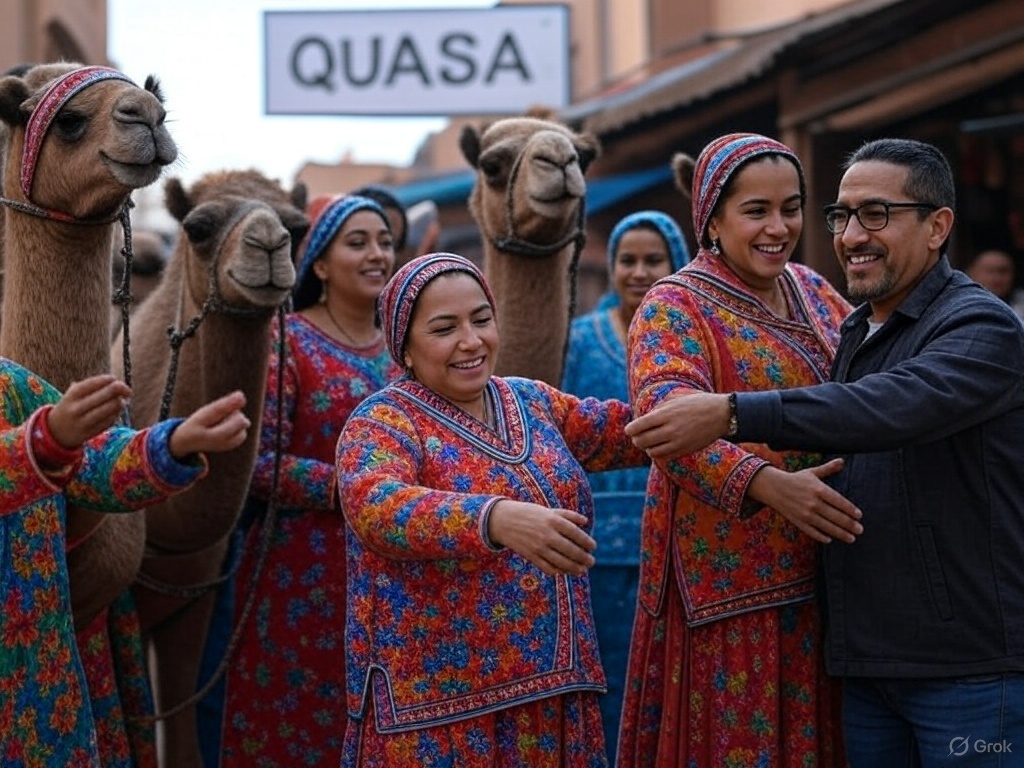 This prohibition means that using QUA or other cryptocurrencies for legal payments within Morocco carries risks, including fines and penalties.
This prohibition means that using QUA or other cryptocurrencies for legal payments within Morocco carries risks, including fines and penalties.
Freelancers must navigate this gray area carefully, often relying on peer-to-peer (P2P) platforms or foreign payment methods to access their earnings, which can expose them to legal scrutiny.
Additionally, the lack of clear tax regulations for cryptocurrency earnings in Morocco creates uncertainty.
Since crypto is not recognized as a legal tender, there are no guidelines on how to report or tax such income, leaving freelancers vulnerable to future regulatory changes. Consulting local legal experts is advisable to stay compliant while using platforms like Quasa Connect.
Another challenge is the learning curve associated with blockchain and cryptocurrency. While Morocco’s younger generation is tech-savvy, some freelancers may need to upskill to understand crypto wallets, smart contracts, and token exchanges.
Quasa Connect mitigates this by offering user-friendly tools like the DayQ sandbox, but broader education on Web3 technologies is needed to fully unlock the platform’s potential.
The Future of Crypto Freelancing in Morocco
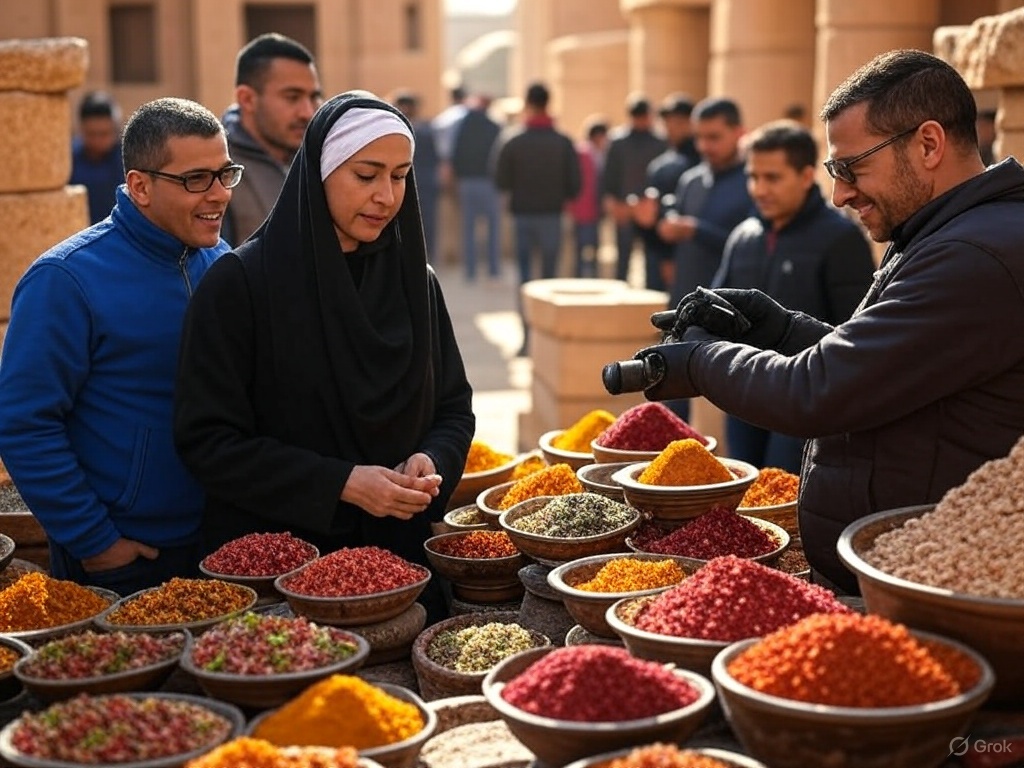 Looking ahead, Quasa Connect’s expansion plans align with Morocco’s growing digital economy.
Looking ahead, Quasa Connect’s expansion plans align with Morocco’s growing digital economy.
The platform aims to reach 200 cities worldwide by 2024 and generate $10 million in revenue by 2026, signaling its ambition to dominate the crypto-freelance market.
For Moroccan freelancers, this presents an opportunity to be early adopters in a transformative industry.
However, the success of crypto freelancing in Morocco will depend on regulatory evolution. If the government relaxes its stance on cryptocurrencies, as seen in countries like the UAE or Singapore, platforms like Quasa Connect could thrive openly, driving economic growth and innovation.
Until then, freelancers must weigh the benefits of decentralized earnings against the risks of operating in a restrictive environment.
Conclusion
By eliminating intermediaries and leveraging blockchain technology, the platform empowers Morocco’s talent to compete on the world stage, free from the constraints of traditional financial systems. While regulatory challenges persist, the potential for financial freedom and professional growth is undeniable.
As Morocco’s freelance community embraces tools like Quasa Connect, the country is poised to become a key player in the global crypto economy, proving that innovation can flourish even in the face of adversity.
Thank you!
Subscribe to our newsletter! Join us on social networks!
See you!

